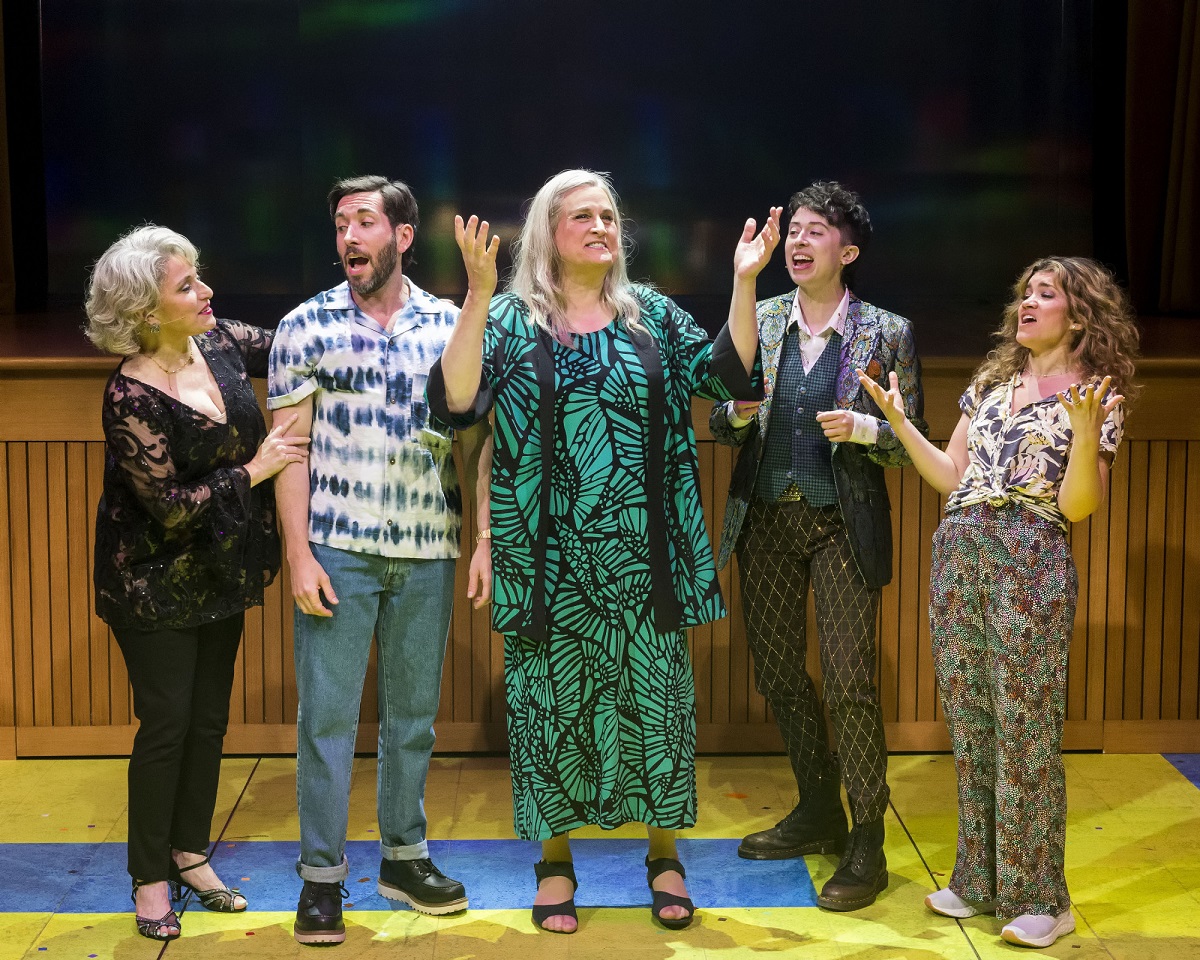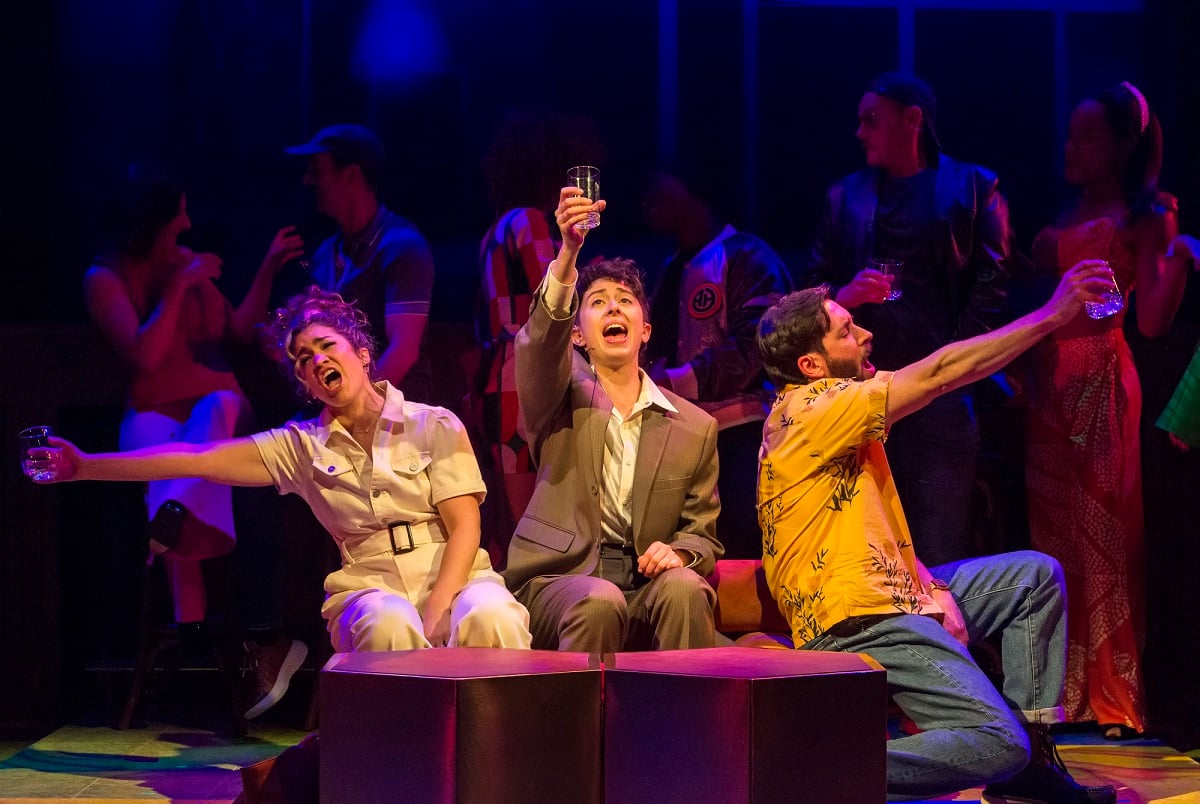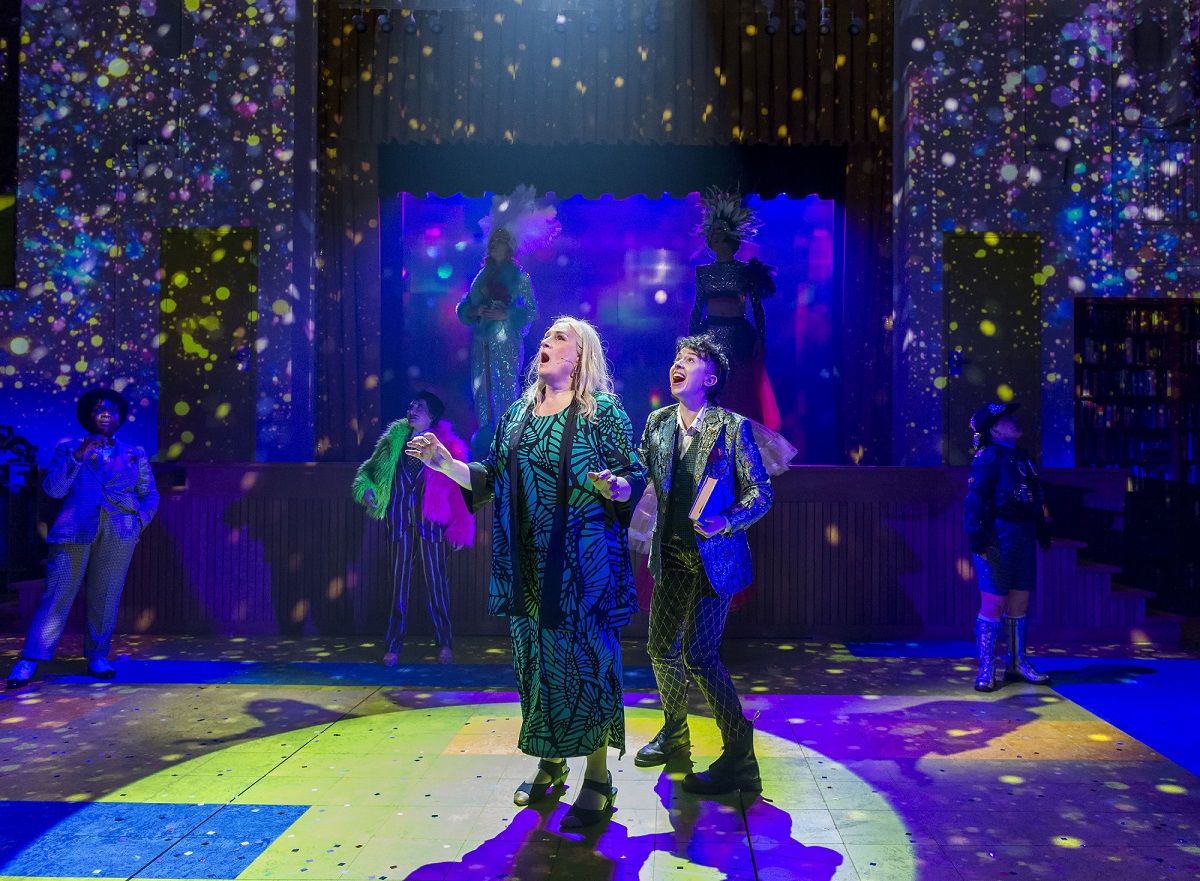Joey Soloway on Examining a Flawed Family (and a Flawed Series) with ‘A Transparent Musical’

As a queer, Jewish, cis woman married to a trans woman, the original Amazon series, Transparent, always held a special place in my heart. Flawed though it was (especially in hindsight), it was also the first of its kind. A mainstream show that examined gender and sexuality through lenses that hadn’t been looked through on television before. A trans lens. A queer lens. And an unapologetically Jewish lens.
Recently, I had the pleasure of looking in on the Pfefferman family when I attended a performance of A Transparent Musical at the Mark Taper Forum in Los Angeles. I was so grateful for the experience.
I went in anticipating the kind of reaction I’d have, but I began having strong, emotional responses to completely unexpected things. Like, I cried during a song about being someone’s emergency contact, for crying out loud.
Co-writers Joey Soloway (who created the TV show based on their own family) and playwright MJ Kaufman adapted five seasons of the series into a book that improves on the original in many ways. Meanwhile, Soloway’s sibling, Faith Soloway, was responsible for the music, lyrics, and vocal arrangements. Their joyful, insightful songs are a big reason why A Transparent Musical is such a satisfying experience.
A Transparent Musical does what the original series did well—centering points of view that don’t normally get centered (trans people, queer people, older married and divorced people)—while adding to those efforts.

For example, a central relationship is that between Davina, a Black, Jewish trans woman who works at the Jewish Community Center, and Ezra, a Black trans man who’s come looking for her believing they have someone in common.
In another intriguing change, the characters of Raquel (the cis woman rabbi played by Kathryn Hahn in the original series) and Shea (the trans woman sex worker played by Trace Lysette) from the original series have been combined to create a trans woman rabbi love interest for Josh.
Rather than pitting a cis and trans woman against each other as Josh’s OTP, this change allows Josh to have feelings for a trans woman without competition from unresolved feelings for a former cis partner. If anything, competition comes from Raquel’s dedication to Judaism, as well as Josh’s difficulty with love in general.
That’s what the show is about for all the characters: love. How hard it is to love others when you’re incapable of loving yourself, and how healing epigenetic trauma can allow us to grow in love.
Despite having a trans woman at its center, the story of Transparent was never only about Maura. It was about her relationship with her family, all of whom were self-absorbed, in their own ways and to varying degrees. All of whom—Maura included—were never taught to fully love themselves, so they were horrible at loving each other.

I got to chat with Joey Soloway via email about the evolution of the Pfeffermans’ story from TV series (with its musical finale) to staged musical, and what it was like to re-excavate their family history in a new medium.
“As we moved into the final seasons of the show, Faith and I were both going on our own nonbinary journeys and coming out as trans,” Soloway explained. “We thought that for this next iteration it might be a strong new direction to take the cues from that journey. Faith and I have begun to wonder, who would we have been if we knew we had this family legacy? That became what we wanted to focus on.”
The epigenetic trauma in Ali’s backstory, stemming from a Pfefferman family connection to Marcus Hirschfeld’s Institute for Sexual Research in Berlin, Germany in 1933, was explored in the series. Since A Transparent Musical was meant to focus on Ali’s journey toward a nonbinary identity (and a new name, Ari), Soloway thought that “going to Weimar felt so right and so theatrical.”
Indeed, the second act of the musical finds Ali/Ari being transported to the Institute, finding joy in how liberated queer and trans folks got to be in Germany in 1933 only to find sorrow in how the Nazis destroyed all of the amassed knowledge on transness and sexuality that was collected there.
Freedom and fascism don’t mix.
I asked Soloway what they hope audiences take away from this experience in light of the disturbing resonance between what happened in 1933 and what’s happening to trans people and queer people globally in 2023. They said:
“We hope the songs stay in your head and wake you up in the middle of the night. That the lyrics take on new meanings—and the awareness that transformations can happen only through art in certain ways. The musical is a trojan horse of joy and delight and the opportunity to be immersed in a trans space. The trans prism as the lens. We love that people may leave feeling discombobulated but opened up. And maybe some people will feel differently about trans rights as human rights.”

I wondered if there was anything difficult not only about reopening the family history, but working with family to create it, but Soloway found that to be the easiest part.
“Working with Faith makes everything easier,” they said. “We have a way of unspoken partnership that we have learned over our entire lifetimes, so having a sibling right across the table or across the room is like having your own artistic vision squared. We know how to toss the ball back and forth gently until we get to an answer.”
Of course, any time one creates art there’s the part that’s beyond the artist’s self-expression, where the work impacts others. I asked Soloway if how they approached their family story in A Transparent Musical would be how they’d approach the TV series if they had it all to do over again.
“I kind of avoid these “do over” questions because life doesn’t work that way,” they said. “It was so long ago in many ways—made in a time where I thought I was cis.” Soloway continued:
“The spark of the idea was only available from the context of our whole family sort of instantly working out what transness even was. Of course no one, including us, would ever cast a cis person as a trans person again, but that’s because of the culture shift. The show changed the culture so quickly that it ended up making the world a place where the show wouldn’t exist as conceived. Which in and of itself is such a puzzle that it’s hard to answer the ‘what ifs’ logically. I feel a lot of remorse and apology for the ways in which casting a cis man did harm, and continue to attempt to repair whenever possible. And as a general rule, in anything and everything, I am always pushing the marginalized to the center, trying to take up queer and trans space, centering BIPOC folx and questioning how white supremacy and patriarchy have colonized even the basics of story structure and what a hero is.”
With A Transparent Musical closing on Sunday, I asked Soloway what was next. Personally, I hope they release an original cast recording because these songs (and their interpretation by a brilliant cast) are really killer.
Apparently, Soloway hopes so, too! They have “[b]ig dreams, including more productions and even a cast album. Cross your fingers!”
My fingers are firmly crossed.
A Transparent Musical runs through Sunday, June 25 at the Mark Taper Forum in Los Angeles.
(featured image: Craig Schwartz Photography)
Have a tip we should know? [email protected]